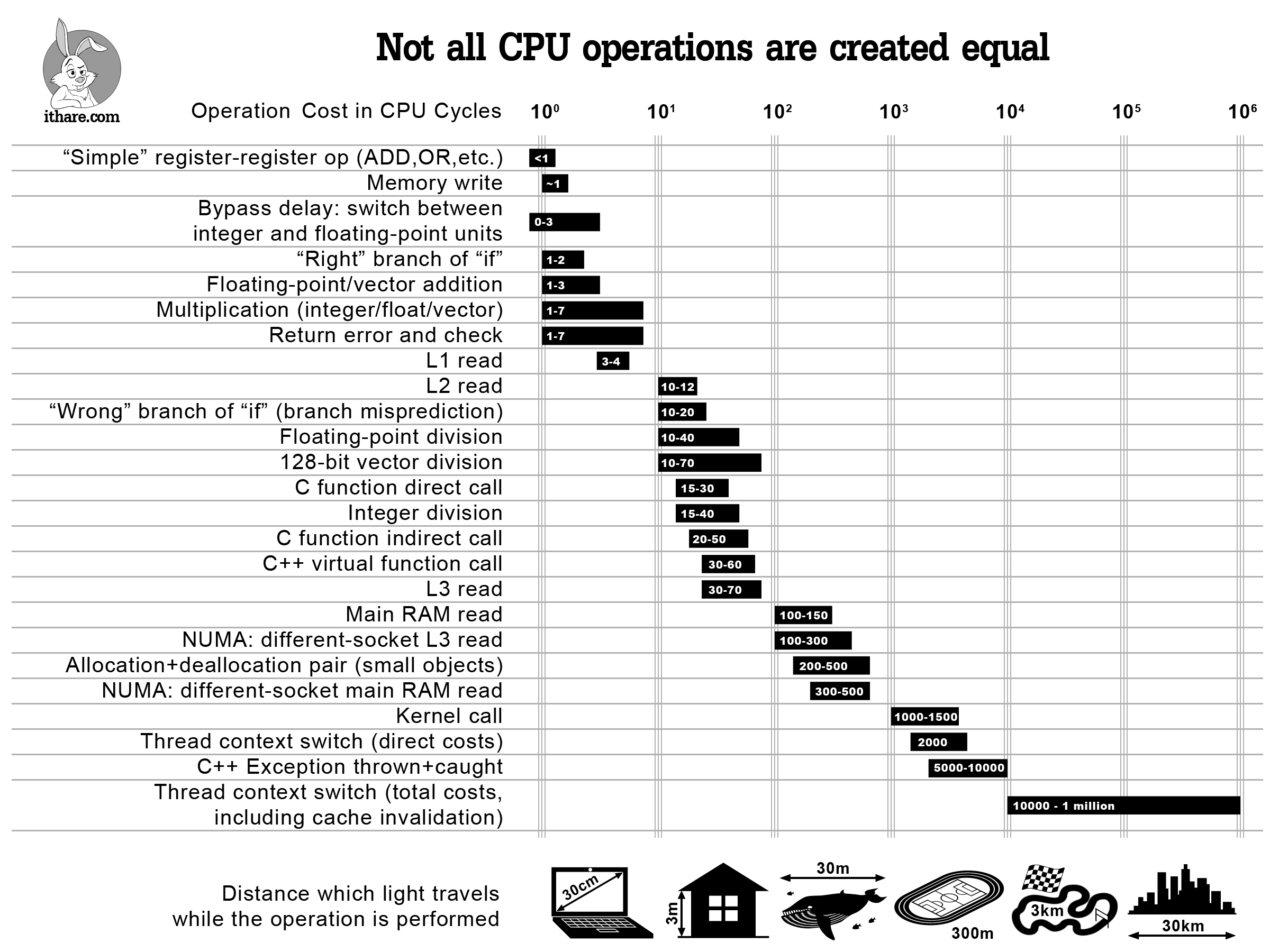Guaranteed Copy Elision -- Jonas Devlieghere
Guaranteed Copy Elision deserves some attention!
Guaranteed Copy Elision
by Jonas Devlieghere
From the article:
The new C++17 standard brings many exciting new features. A smaller, more subtle improvement it brings is guaranteed copy elision. The keyword is guaranteed, as copy elision itself has always been part of the standard. Although it might not be a change as radical as, say, structured bindings, I'm very happy to see it made it into the standard.

 Compilation time computations are good!
Compilation time computations are good!
 A very interesting article about the cost of our basic operations.
A very interesting article about the cost of our basic operations.